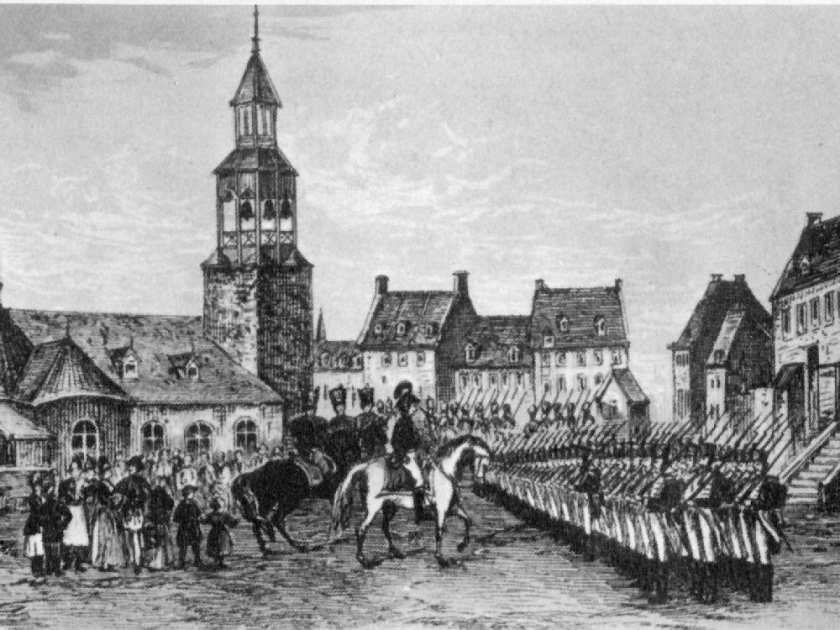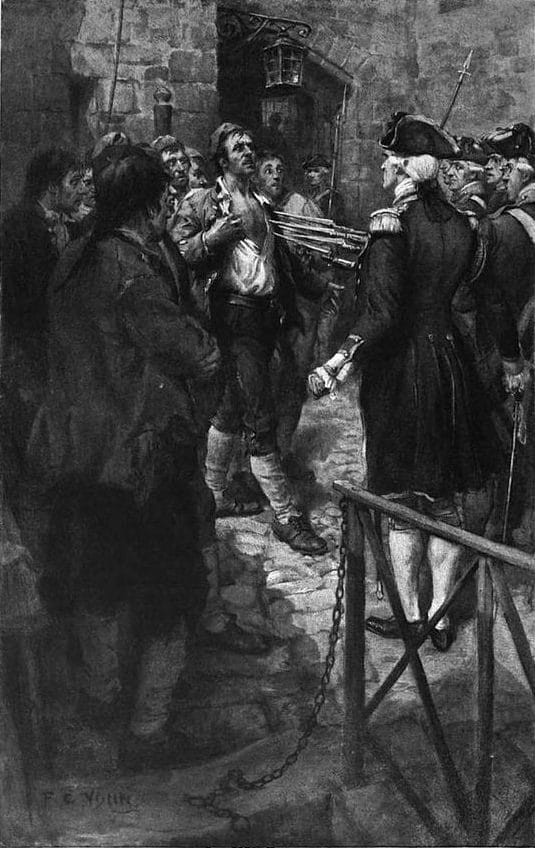The Battle of Montreal (also known as the Battle of Longue-Pointe) was the second engagement of the Canada Campaign and was a necessary battle in the effort to capture Canada. The battle occurred during the siege of Fort St. John when Richard Montgomery sent Colonel Ethan Allen (One of the heroes of Fort Ticonderoga) and Major John Brown to gather Canadians to fight against the British. British General Guy Carleton learned of the plan through spies and was prepared for the attack.

Jump to:
Battle of Montreal Facts: Overview
Date of Battle: September 24 - 25, 1775
Region: Montreal, Quebec Province, Canada
Opposing Forces: British: 235; American: 110
British Perspective: With the siege of Fort St John taking place, General Guy Carleton knew that the area around Montreal would be threatened. He initiated an effort to relieve his forces in the region until spies informed him that the Americans were recruiting forces to attack Montreal. After learning of these plans, he sent a detachment of 235 soldiers made up of Quebec militia, native Indians, and British. These men moved quickly and were able to trap Ethan Allen on the outskirts of the city.
American Perspective: During the siege of Fort St John, General Richard Montgomery sent Colonel Ethan Allen and Major John Brown to recruit Canadians to fight the British at Montreal. They were able to recruit some men but were not able to recruit as many as they would like. Colonel Ethan Allen wanted to continue with the plan, and he took his 110 men to Montreal to try and control the region. His plan quickly fell apart when Major Brown was unable to meet his deadline, and General Carleton had begun a maneuver to surround the small force. Allen took up a defensive position a few miles on the outskirts of Montreal because he could not cross back to safety.
Battle of Montreal Facts: The Fighting

General Guy Carleton moved out against Allen's trapped force. When confronted by the American forces, the British fired a volley into Allen's recruits, and they all fled the field. Allen attempted to organize a fighting withdrawal but failed to be successful. The British did not report losing any men, while the Americans had some casualties and 40 captured.
The result of the Battle of Montreal, from a tactical perspective, did not matter much. General Carleton abandoned the region, and it was captured without firing a shot. He moved all of his resources to the city of Quebec. Ethan Allen's poor decision to attack rather than retreat back to Montgomery led to his capture and a loss of confidence in the American cause in Canada. Most Canadians would support the British or stay idle during the American Revolutionary War.
When the British learned that Ethan Allen had participated in the capture of Fort Ticonderoga, he was thrown into prison, and many called for him to be hanged. The British, fearful of American retaliation against their prisoners, did not hang Allen and eventually exchanged him for British officer Archibald Campbell.
Battle of Montreal Facts: Online Resources
- Wikipedia - Battle of Longue-Pointe
- My Revolutionary War - Battle of Longue-Pointe
- History Channel - Capture of Montreal
- The History Junkie's Complete Guide to the American Revolutionary War
- The History Junkie's Guide to the American Revolutionary War Battles
- The History Junkie's Guide to the American Revolutionary War Timeline
- The History Junkie's Guide to the 13 Original Colonies
